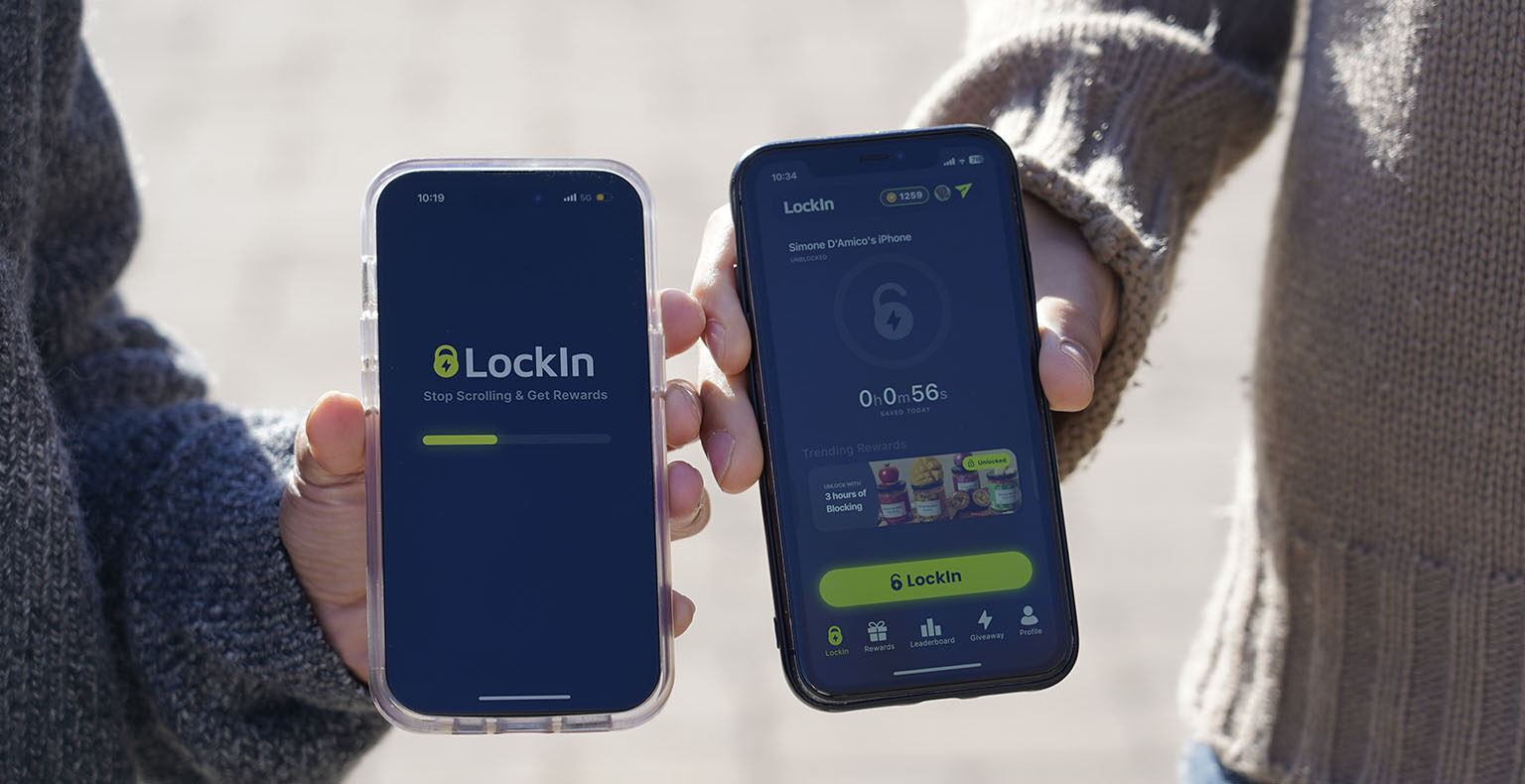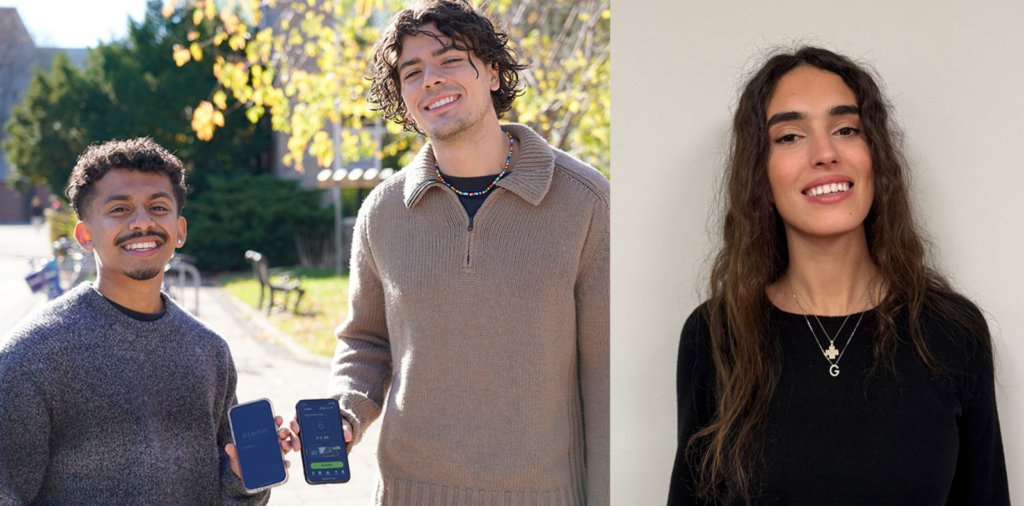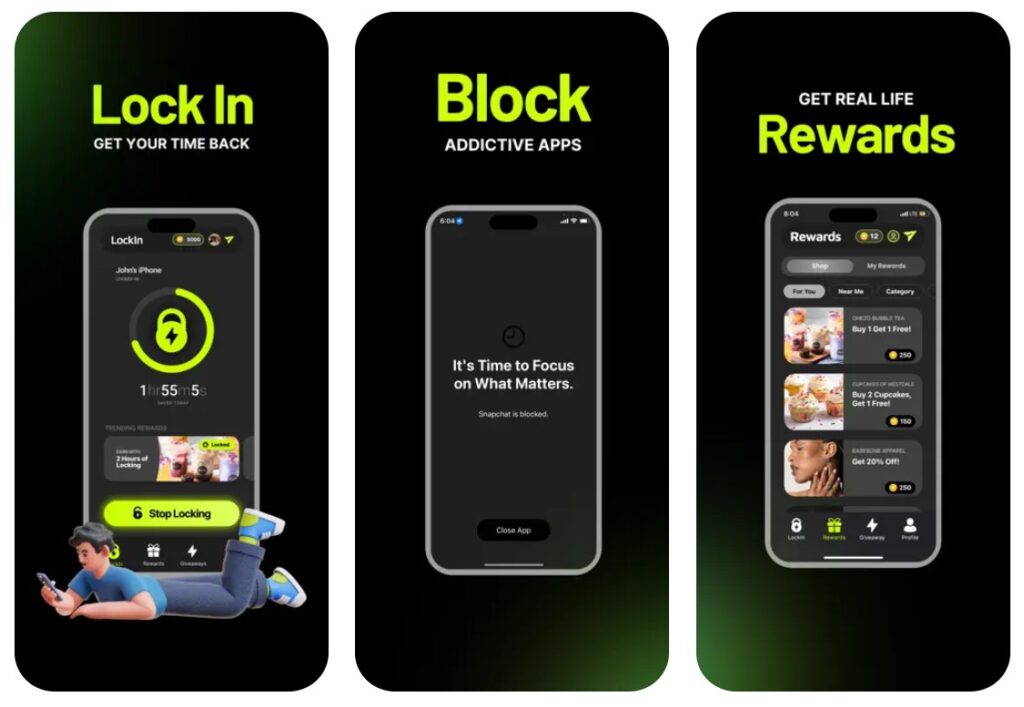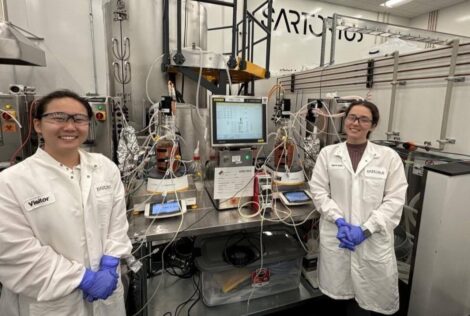

Mindless scrolling across social media apps is a habit all too common in the age of smartphones.
It’s an algorithm trap that a group of co-founders, including two McMaster University students, experienced firsthand and felt inspired to create change. Their approach? Fight fire with fire. Their newly launched venture, Lockin Inc. is an app that rewards users for blocking social media on their phones to stop the scrolling cycle.
When Lockin is activated, users unlock exclusive rewards and discounts at popular local businesses in addition to benefiting from healthier digital consumption.
Identifying a problem
What began as a casual conversation between Mechanical Engineering student Kyle Fernandes and Psychology, Neuroscience and Behaviour student Simone D’Amico evolved into a year-long app development endeavour that has resulted in LockIn Inc.
D’Amico had expressed his unease with smartphone dependence to Fernandes, which was amplified by The Social Dilemma, a Netflix docudrama exposing the negative effects of social networking. Reflecting on their own usage habits—averaging between six to eight hours daily—they realized the extent of their digital distraction.
That’s where our time had gone! Social media apps can distract us from everyday life and tasks, taking away our most precious resource: time. I thought about how much time we could gain back if only we were able to turn these distractions off.
With some prior experience in entrepreneurship, Fernandes and D’Amico were immediately inspired to explore the potential of a tool to eliminate distractions. “Social media is designed as connection points between people but that connection can lead to overconsumption,” says Fernandes. “They take a toll on attention span and bad habits form. If you don’t see something you like, you’re scrolling to the next thing and the dopamine-driven feedback loop continues.”
The duo recruited Giulia Violati, an MBA student in Rome, Italy with a corporate finance background who works at the United Nations.

Drawing from research conducted amongst McMaster students, which revealed an average of 7.2 hours per day spent on smartphones, a market analysis that pointed to a gap in free social media blocking tools, and D’Amico’s experience studying addictive behaviours, the trio quickly got to work developing what would soon become LockIn.
Adding “friction” to social media use
Described by Fernandes as adding a layer of “friction,” LockIn encourages users to engage with social media intentionally rather than impulsively, helping to break ingrained habits.
It’s as straightforward as downloading the app, selecting the duration and specific apps to pause or block and earning digital coins upon completion.

Lockin is free to users, and the digital coins earned through the app can be redeemed at partnering establishments like Pita Pit, Smoke’s Poutinerie, Willy Dog, The Westdale Theatre, campus restaurants and many more; places where users can experience meaningful in-person connections.
Changing social media behaviour for social good
LockIn’s founders emphasize that the purpose of their app isn’t to eradicate social media, but instead, to promote positive and healthy use.
D’Amico points to promising results since launching in the AppStore on October 1. In just over a month, 3,000 people at McMaster University are using it. On average, each of those users has saved an average of 21 hours by avoiding social media apps on their phones.
“Giving back nearly a day in a month to users motivates me to keep improving our product,” D’Amico says. “The goal is to contribute to creating more present, focused and healthier individuals, ultimately leading to a brighter world where everyone has full control of their time. We want to be the number one productivity app on the App Store and give 1 billion people the gift of their time back.”
For the LockIn Inc. team, the time spent creating the app comes in addition to their academics and work obligations. Their collective dedication to bringing it to fruition is a testament to how much they believe in the value of this tool – for themselves and their peers.
What’s more, they’re finding opportunities for real-time applications for the skills developed in their engineering and psychology classes while improving their business acumen.
I’m learning from mechanical engineering how to boil down hard, technical problems to basic principles. It’s led to a well-designed app to break free of the algorithm.


